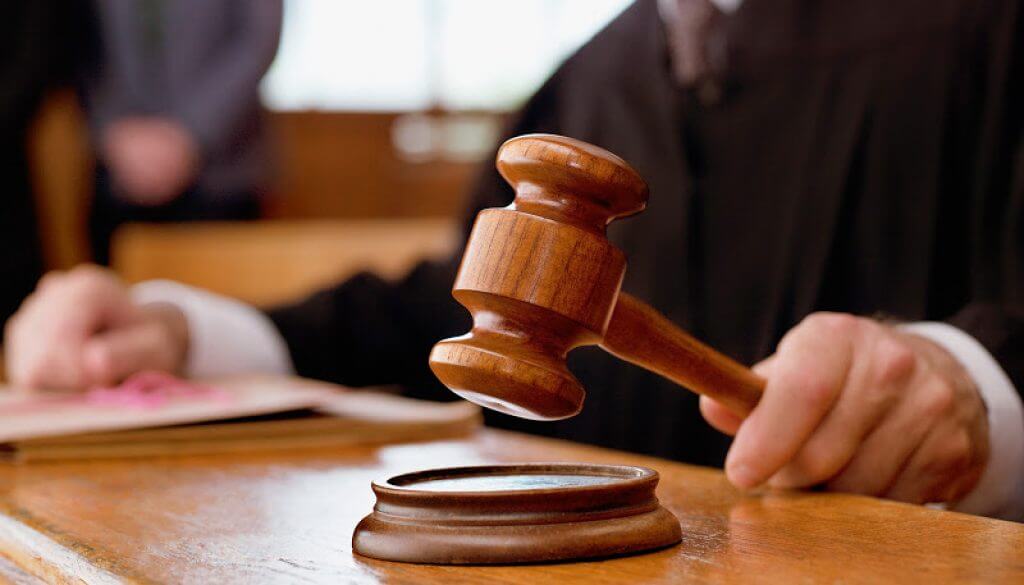
The physical security of judges is an important issue. Judges are often the target of threats and intimidation. Physical security can be compromised by many factors, including the judge’s location, their mode of transportation, and their personal habits.
5 Areas That Must Be Protected For Physical Security of Judges:
– The judge’s location;
– The judge’s mode of transportation;
– The judge’s personal habits;
– The courthouse environment;
– The community environment.
Introduction: What is Justice Recuse and Why is it Necessary?
The purpose of recuse is to avoid the appearance or reality of a conflict of interest, or the risk of impropriety.
The term “recuse” derives from the Latin word “recuse” which means to refuse. In law, recuse is a formal process in which a judge or juror steps down from participation in an official proceeding. Recuse can be voluntary, when it’s based on an objection such as bias or conflict of interest; involuntary, when it’s based on a statutory requirement; or permissive, when it’s based on court order.
Recuse comes from the Latin word “recuse,” meaning “to refuse.” The term refers to a formal process in which a judge steps down from participation in an official proceeding
Background Checks for Judges
Background checks are conducted to ensure that the judges are fit for the job. The process of background checks may vary from one country to another, but they all have a common purpose – to make sure that the judges are qualified and competent enough to take on their responsibility.
The law and order system in a country relies heavily on judges. A judge is expected to be unbiased, fair, just, and impartial. Background checks help them prove their suitability for such high-level positions.
Protection from Intentional Violence in the Home
Judges are the backbone of our society. They are entrusted with making decisions that affect the lives of many people. It is important to protect them from any form of violence in order to maintain a stable society.
The security measures for judges should be more stringent than for other people. For example, judges should have a separate entrance to their home and they should have security guards as well as metal detectors at their entrances. Security guards need guns and 223 ammo for judges security.
Protection from Intentional Violence in Public Places
The ambassador program for judges is a new initiative to protect people from intentional violence in public places. The program will provide judges with training in verbal judo and other techniques that can be used to defuse potentially violent situations.
The ambassador program for judges will be a new initiative that will provide judges with training in verbal judo and other techniques that can be used to defuse potentially violent situations.
Violence is a major public health problem, with the World Health Organization estimating that more than 800,000 people die each year as a result of violence.
Protection from Cyber Attacks & Technological Hacking Attempts
Cyber attacks can be carried out by anyone with a computer and an internet connection. And it is not only the companies who are at risk, but also the judges. Judges have to use technology in their work, which means that they are exposed to cyber attacks.
Judges have to make decisions based on a lot of information that they read from different sources. This means that they need to access information from different sources and be able to link them together. They also need to know how to use technology like Microsoft Word and Excel. All this makes them more vulnerable than other professionals because they have access to so many data sources and devices that can be hacked into and used against them by criminals or terrorists who want to cause harm or manipulate the judicial process for their own purposes.
Protection From Murder Attempts & Threats of Harming Other People’s Lives
A person who is being threatened can apply for a restraining order. A restraining order is a court order that prohibits certain behaviors or actions. The person who has been threatened can request the restraining order to be granted by the court.
The person who has been threatened needs to provide evidence of the threat from their abuser in order to have a restraining order granted. This evidence might include emails, text messages, or pictures of injuries. If there are witnesses, it will also help prove that there was an attempted murder or threat of harm.
The judge will decide if the threat is credible enough for them to grant the request for a restraining order. They may ask questions about why and when the threats were made and whether they have any history with law enforcement (which would make them less credible).
